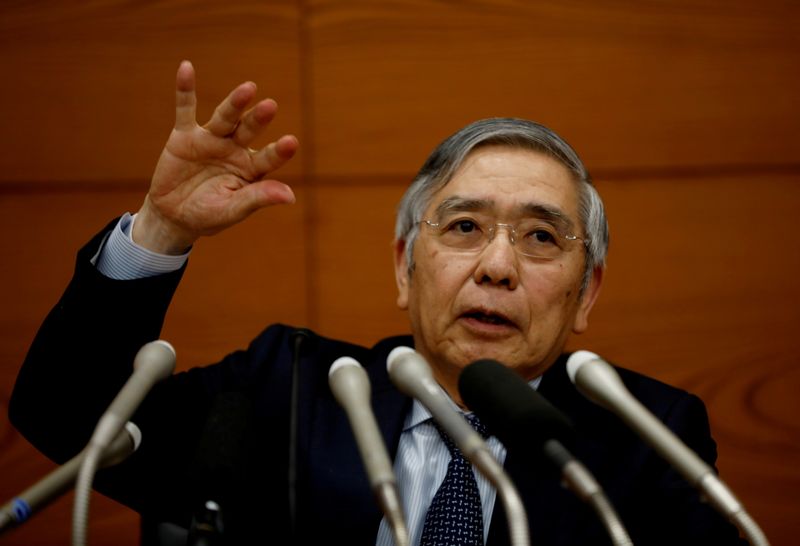By Leika Kihara
TOKYO (Reuters) - Bank of Japan Governor Haruhiko Kuroda said on Friday the central bank will maintain its dovish guidance on the future path of interest rates for the time being, as the coronavirus pandemic continues to weigh on the fragile economy.
Under the current forward guidance, the BOJ says it "won't hesitate to take additional easing steps," and expects short- and long-term policy interest rates to "remain at their present or lower levels."
As central banks across the globe eye interest rate hikes, markets have been rife with speculation that the BOJ may also change its guidance to one with a more hawkish tilt such as by removing the reference on its readiness to ease further.
"The coronavirus pandemic is a major risk that could further hurt Japan's economy," Kuroda told a seminar.
"As such, it's appropriate to maintain ... the dovish bias of our guidance for the time being," he said.
Kuroda also said an expected, near-term rise in inflation would lack sustainability as it will be driven mostly by energy costs, stressing the need to keep monetary policy ultra-loose.
"For inflation to heighten as a trend, Japan must see a shift from inflation caused by energy prices, to one that is driven by increasing corporate profits and wage growth," he said.
Under a policy dubbed yield curve control, the BOJ sets its short-term interest rate target at -0.1% and that for 10-year government bond yields around 0%.
With inflation seen accelerating to around its 2% target due largely to surging fuel and commodity costs, the BOJ has been struggling to convince markets that such cost-driven price rises won't prompt it to raise interest rates.
